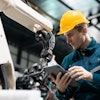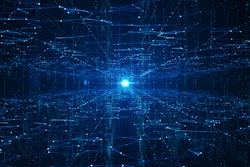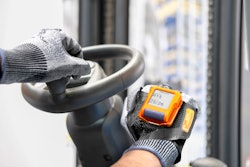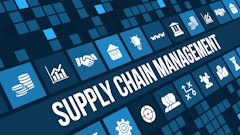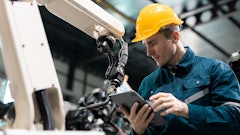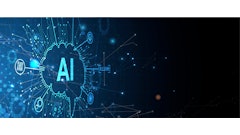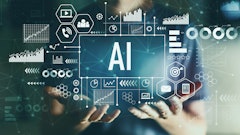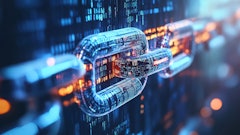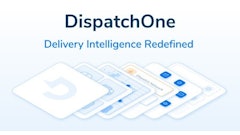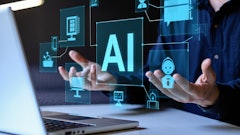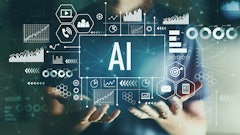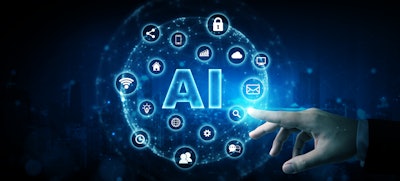
Artificial intelligence (AI) is fundamentally transforming how we interact with technology by changing the way we communicate, work, and access information. This article will shed light on how AI will reshape our use of devices and software, both at home and in the business world.
This isn't just science fiction anymore. AI advancements like ChatGPT and Google Gemini offer a glimpse into AI’s potential to create opportunities for everyone the world over. It’s positioned to innovate and advance discoveries that will improve lives and enhance knowledge, spur creative endeavors, and increase productivity beyond our imagination.
The potential impact of AI can be compared to the seismic shifts brought about by the internet and smartphones. AI will significantly affect our technology landscape and may launch innovations that even surpass the impact of the internet, our trusty laptops, smartphones, and other mobile devices by innovating new ways of communicating, information sharing and supercharging new ideas.
Envision a future where voice commands reign supreme. AI, adept at understanding our intent, will personalize content and streamline tasks. In the future, we will probably control our laptops or smartphones verbally to a large extent. AI will be able to understand user intent and personalize content. This level of individualization will soon permeate most user interfaces.
AI Becomes Intrinsic
Does this spell the end for traditional apps? Not necessarily, but it will make life simpler in managing them. With AI at the helm, our smartphones can become powerful knowledge hubs. With an average of about 30 apps on our smartphones, for example, AI can combine information from these apps and summarize and prioritize messages. Or users can use voice commands to gather information from multiple apps. These commands are supported by AI logic that can put the instructions into the right context. It will read user interfaces across system boundaries and find, understand, and evaluate information according to the user’s specifications in order to deliver relevant results.
User interfaces as we know them will likely transform. Though the jury's out on whether apps become entirely obsolete, one thing is clear, our interaction with mobile devices will be increasingly driven by AI. Major players like Google and Apple are already integrating AI features into smartphone operating systems, paving the way for a future of intuitive and intelligent interaction.
The impact of AI goes beyond user interfaces. While voice-controlled interfaces and personalized experiences are exciting, the true power of AI lies in its ability to revolutionize business. Language will become the bridge between humans and software, not just for interaction, but for deep understanding. It wouldn’t be unrealistic to expect that within the next decade software will be developed that not only follows complex instructions but also learns from them.
A Company Game-Changer
Today's complex, parameter-heavy software will be replaced by AI models that "learn the landscape" of business processes. This "process AI" will tap into vast data streams to empower better decision-making. While some automation is on the horizon, human oversight and input will remain crucial.
AI will become the ultimate problem-solver, tackling optimization, decision-making, knowledge management, and process automation. Just as people and hardware are essential today, software and AI will be the cornerstones of future businesses. The bottom line is that no small, mid-size, or large-scale global company can afford to ignore AI.
Approximately 64% of businesses surveyed by Forbes, said they anticipate artificial intelligence will help increase their overall productivity. This illustrates a growing perception that AI’s potential to transform business operations will be immensely transformative.
Imagine AI as a superhero of efficiency. It swoops in to tackle complex decision-making, especially in the heart of production and logistics. Need millions of cars delivered on time? AI streamlines the process. Building a giant cruise ship? AI keeps construction on target. But AI’s powers extend beyond just factories and shipyards. AI helps supermarkets optimize deliveries and manage returnable containers, ensuring fresh food arrives exactly when needed. It even aids the financial sector, cleverly sniffing out potential financial crimes.
Breaking Down Data Silos
The biggest difference between AI-powered software and the old guard? It's not picky about data. Traditional software relied on organized data sets, like filing cabinets in the digital world. AI, on the other hand, is a master linguist. It can understand and process all sorts of information, breaking down communication barriers between humans and machines.
This creates a seamless flow between the different ways we interact with technology. AI is creating a world in which voice commands and formal data analysis work together. The result is innovative software that's more in tune with the real world than ever before. There is nothing more powerful than natural interactions between humans and machines.
One perk of this new, AI-powered world is that It's easy to use. Since AI can understand complex processes and voice commands, the interface is intuitive for trained users, not just tech geniuses. Complex machines won't require expert control, which opens the doors for a wider range of talent from upskilled workers on-site to younger recruits who are already familiar with basic technology.
The future is intelligent, and it's arriving faster than ever. As AI reshapes our world, it presents a once-in-a-generation opportunity to unlock human potential. By embracing the power of AI, companies will be ready to thrive in a world of seamless interaction, optimized processes, increased efficiencies, and enhanced consumer experiences that clearly define competitive advantages and endless possibilities.


